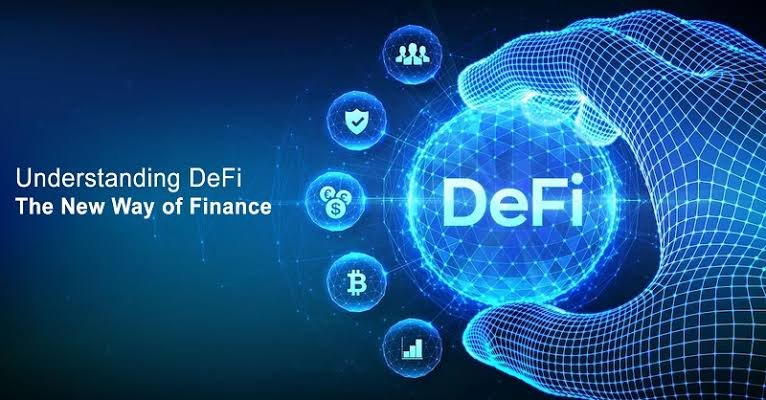The DeFi (Decentralized Finance) revolution refers to the fast rise and adoption of localised business enterprise systems and platforms built on blockchain technology, in the first place Ethereum. Unlike traditional finance, which relies on centralized institutions wish Sir Joseph Banks and brokers, DeFi operates on a localized web of smart contracts, which automatize financial minutes without intermediaries. Here’s an overview of the key aspects of the DeFi revolution:
- Core Principles:
Decentralization: No central authority controls the system; instead, it’s governed by protocols and consensus mechanisms.
Transparency: All transactions are recorded on a public ledger (blockchain), making them accessible for anyone to audit.
Permissionless Access: Anyone with an internet connection can access DeFi platforms without the need for traditional business intermediaries.
Interoperability: DeFi protocols tin interact with each other, allowing users to unite different services to create usage fiscal products.
- Key Components:
Decentralized Exchanges (DEXs): Platforms care Uniswap and SushiSwap take into account users to trade cryptocurrencies directly without intermediaries.
Lending and Borrowing: Platforms like Aave and Compound countenance users lend their assets to garner interest or take up against their holdings.
Stablecoins: Cryptocurrencies like DAI and USDC are pegged to traditional currencies like the USD, offer stability in the volatile crypto market.
Yield Farming: A process where users garner rewards by providing liquidness to DeFi protocols, often receiving high returns.
Insurance: Decentralized insurance platforms care Nexus reciprocal provide coverage for varied risks in the DeFi ecosystem.
- Impact and Challenges:
Financial Inclusion: DeFi has the potential to bring financial services to unbanked populations worldwide.
Innovation: The flexibility of smart contracts has led to the existence of entirely new financial products.
Regulatory Uncertainty: The decentralized nature of DeFi poses challenges for regulators, who fight to apply traditional financial laws.
Security Risks: The rapid increment of DeFi has attracted bad actors, and thither have been instances of hacks and exploits.
- Future Outlook:
Mainstream Adoption: As DeFi matures, it whitethorn become integrated with traditional finance, offering hybrid solutions.
Layer 2 Solutions: Scalability solutions like Optimistic Rollups and zk-Rollups are expected to tighten transaction costs and increase efficiency.
Interoperability: cleared cross-chain communication whitethorn lead to a more wired DeFi ecosystem crossways multiple blockchains.
The DeFi revolution is still in its early stages, merely it’s already reshaping the financial landscape by providing an alternative to traditional financial systems, empowering individuals with more control over their fiscal assets.
Posted Using InLeo Alpha

Congratulations @vulisic! You have completed the following achievement on the Hive blockchain And have been rewarded with New badge(s)
Your next target is to reach 50 upvotes.
You can view your badges on your board and compare yourself to others in the Ranking
If you no longer want to receive notifications, reply to this comment with the word
STOP